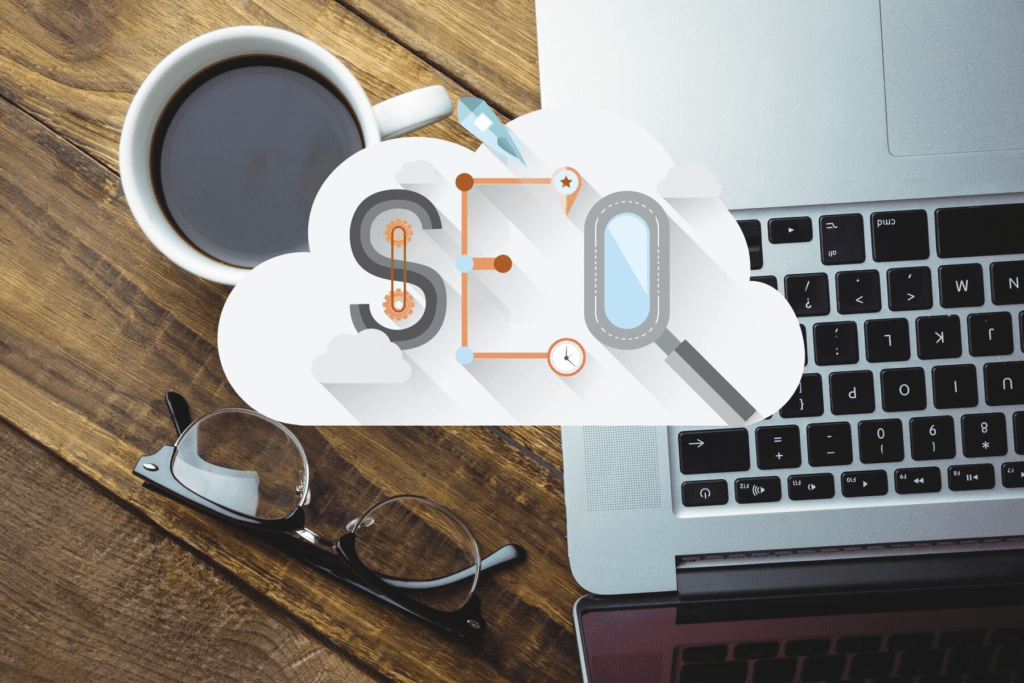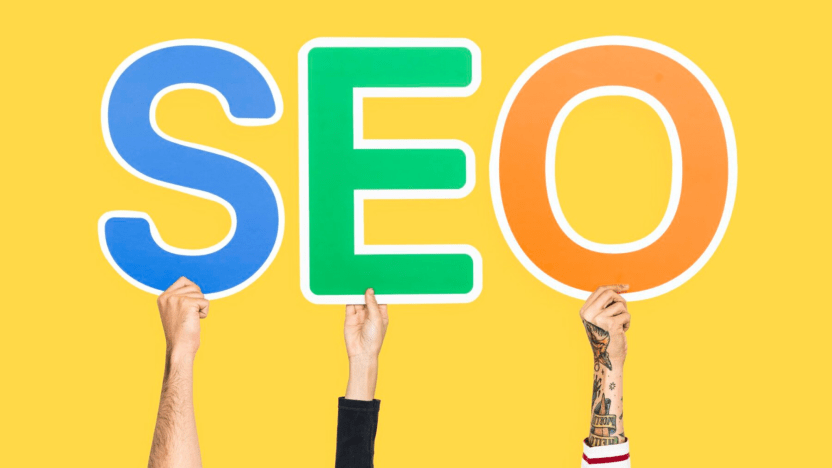SEO enhances website visibility, drives organic traffic, increases brand awareness, and boost conversions without paid ads.

Search Engine Optimisation (SEO) is a multifaceted discipline that focuses on enhancing a website’s visibility on search engines like Google, Bing, and Yahoo.
The primary goal of SEO is to increase organic traffic, which refers to visitors who arrive at a site through unpaid search results. This process involves a combination of strategies and techniques that aim to improve a website’s ranking in search engine results pages (SERPs).
Let’s delve into the various components of SEO and explore why it is essential for businesses today.
Understanding SEO

SEO can be broadly categorised into three main components: on-page SEO, off-page SEO, and technical SEO. Each of these areas plays a crucial role in optimising a website for search engines and ensuring it ranks well in search results.
On-Page SEO
On-page SEO refers to the practices you implement directly on your website to improve its visibility. This includes optimizing content with relevant keywords, improving meta tags, and ensuring that the website structure is user-friendly.
By focusing on high-quality content that answers users’ queries, you can enhance engagement and reduce bounce rates, which are important factors for search engines.
Key elements of on-page SEO include:
- Content Quality: High-quality, relevant, and informative content is the cornerstone of effective SEO. Search engines prioritise content that provides value to users. This means creating well-researched articles, blog posts, and product descriptions that address the needs and interests of your target audience.
- Keyword Research: Identifying the right keywords is essential for on-page optimisation. Keywords are the terms and phrases that users type into search engines. By conducting thorough keyword research, businesses can understand what their audience is searching for and incorporate these keywords naturally into their content.
- Meta Tags: Meta titles and descriptions are HTML elements that provide information about a webpage. An optimized meta title should be concise, include relevant keywords, and accurately reflect the page’s content. The meta description should summarize the content and encourage users to click through to the site.
- Header Tags: Using header tags (H1, H2, H3, etc.) helps structure content for both users and search engines. The H1 tag typically represents the main title of the page, while the H2 and H3 tags can be used for subheadings. This hierarchy makes it easier for search engines to understand the content’s organization.
- Image Optimisation: Images can enhance user experience, but they can also slow down page loading times if not optimized properly. Using descriptive file names and alt text helps search engines understand the content of images, which can improve rankings in image search results.
Off-Page SEO
Off-page SEO involves activities conducted outside your website to influence its ranking. This primarily includes link-building strategies, where acquiring backlinks from reputable sites can significantly boost your site’s authority.
Social media marketing and influencer outreach also fall under this category, as they help drive traffic and create brand awareness, further enhancing your site’s credibility.
Key elements of off-page SEO include:
- Backlink Building: Backlinks are links from other websites to your site. They are a significant ranking factor because they signal to search engines that your content is credible and valuable. Building high-quality backlinks from reputable sources can significantly boost your site’s authority.
- Social Media Engagement: While social media signals may not directly influence SEO rankings, they can drive traffic to your website and increase brand visibility. Sharing content on social media platforms can lead to more shares and links, indirectly benefiting your SEO efforts.
- Influencer Marketing: Collaborating with influencers in your industry can help expose your brand to a broader audience. When influencers share your content or link to your site, it can enhance your credibility and attract more visitors.
Technical SEO
Technical SEO focuses on the backend aspects of your website that impact its performance and indexing. This includes improving site speed, ensuring mobile compatibility, and optimising the site’s architecture for better crawling by search engines.
Addressing technical issues, such as broken links or duplicate content, is essential for a smooth user experience and can positively affect your search rankings.
Key aspects of technical SEO include:
- Site Speed: Page loading speed is a critical factor in user experience and SEO. Slow-loading pages can lead to higher bounce rates, negatively impacting rankings. Optimising images, leveraging browser caching, and minimizing server response time are essential for improving site speed.
- Mobile-Friendliness: With the increasing use of mobile devices for internet browsing, having a mobile-friendly website is crucial. Responsive design ensures that your site adapts to different screen sizes, providing a seamless experience for users.
- XML Sitemap: An XML sitemap is a file that lists all the pages on your website, helping search engines understand its structure. Submitting an XML sitemap to search engines can improve indexing and ensure that all pages are crawled.
- Robots.txt: This file instructs search engines on which pages to crawl and index. Properly configuring the robots.txt file can prevent search engines from indexing duplicate content or low-value pages.
Together, these three components create a comprehensive SEO strategy that not only improves visibility in search engines but also enhances user experience, ultimately driving more organic traffic to your site.
Search Engine Optimisation (SEO) plays a crucial role in enhancing your online presence and attracting visitors to your website.
When we talk about increased organic traffic, it’s essential to understand that this traffic comes from search engines like Google, where users are actively searching for information, products, or services.
The Importance of SEO

Increased Organic Traffic:
One of the primary benefits of SEO is its ability to drive organic traffic to your website. This type of traffic is incredibly valuable because it comes from users actively searching for information, products, or services related to your business.
Unlike paid advertising, which requires continuous financial investment to maintain visibility, organic traffic can offer a sustainable and steady flow of visitors over time.
When your website ranks higher in search engine results due to effective SEO strategies, it attracts more clicks from users who are genuinely interested in what you have to offer.
This not only increases the quantity of visitors but often enhances the quality as well, since these individuals are seeking solutions that align with your offerings.
For businesses that aim to foster long-term relationships with customers, organic traffic is particularly beneficial. It allows for the establishment of trust and credibility, as customers are more likely to engage with a brand that appears prominently in search results.
As you continue to optimise your site and provide valuable content, you can maintain and even grow this organic traffic, leading to ongoing opportunities for conversion and customer loyalty.
In essence, investing in SEO is investing in the long-term success and sustainability of your business.
Cost-Effectiveness:
SEO is often more cost-effective than traditional advertising methods, making it an attractive option for businesses of all sizes.
While there is an initial investment required for activities such as content creation, keyword research, and site optimisation, the long-term benefits of organic traffic can significantly outweigh these upfront costs.
Once your website achieves a high ranking in search engine results, it can continue to draw visitors without the need for ongoing expenses associated with paid advertising.
This means that, unlike ads that require continuous funding to maintain visibility, a well optimised site can provide a consistent stream of traffic over time.
The traffic generated through SEO tends to be more sustainable and reliable. As your content remains relevant and continues to meet the needs of your audience, you can enjoy ongoing visibility in search results.
This not only helps to build brand awareness but also contributes to a higher return on investment (ROI) in the long run.
By focusing on SEO, businesses can maximize their marketing budgets, enhance their online presence, and cultivate a loyal customer base without incurring the high costs associated with traditional advertising.
This makes SEO a smart strategy for those looking to achieve cost-effective growth and success in the digital landscape.
Enhanced User Experience:
SEO involves optimising various elements of a website to improve user experience, which is crucial for retaining visitors and encouraging them to engage with your content.
When a website is well optimised, it not only ranks higher in search engine results but also provides a seamless and enjoyable experience for users.
Key aspects of SEO that contribute to enhanced user experience include website speed, mobile responsiveness, and intuitive navigation.
A fast-loading website keeps users from becoming frustrated and leaving before they find what they are looking for. Similarly, with the increasing use of mobile devices, ensuring that your site is mobile-friendly is essential for catering to a broader audience.
SEO encourages the creation of high-quality, relevant content that addresses the needs and questions of users. When visitors find valuable information that meets their expectations, they are more likely to stay longer, explore more pages, and return in the future.
Optimising metadata, such as title tags and meta descriptions, helps users understand what to expect from a page before they click on it. This clarity not only improves click-through rates but also aligns with user intent, leading to higher satisfaction.
By focusing on SEO, businesses can create a user-centric website that not only attracts visitors but also keeps them engaged, ultimately leading to higher conversion rates and customer loyalty.






[…] Learn SEO WritingSEO helps your articles rank on Google. Understanding how to search engine algorithms work and how to optimize content for SEO is very helpful and adds value to you as a writer. Here is a guide on SEO to get you started: What is SEO and why is it important? […]